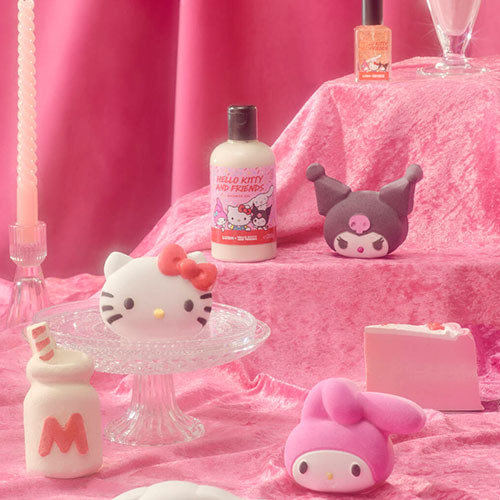Start Licensing’s Ian Downes on the return of McDonald’s and its Happy Meals and how licensing can add value to the shopping experience.
I haven’t really ever been afflicted by an ear worm, but in the last two weeks I haven’t been able to get Return of the Mack by Mark Morrison out of my head. This was a great track when first released and has come back into my musical orbit due to it being used by McDonald’s in its ongoing TV campaign. For lots of people the return of McDonald’s is a small step back to normality. Indeed near where I live is a drive-through McDonald’s. This has proved so popular there are now tailbacks on the main road leading into it!
The re-opening of McDonald’s has also meant a restart for its Happy Meal promotional programme which, in turn, means licensing is back in focus. The current promotion is linked to the Scooby Doo movie, Scoob. Movies and cinema activations have in themselves changed a bit in recent months and we have seen more movies going straight to ‘on demand’ platforms. This has undoubtedly had an impact on promotions and it will be interesting to see how the world of movie promotions further adapts in future.
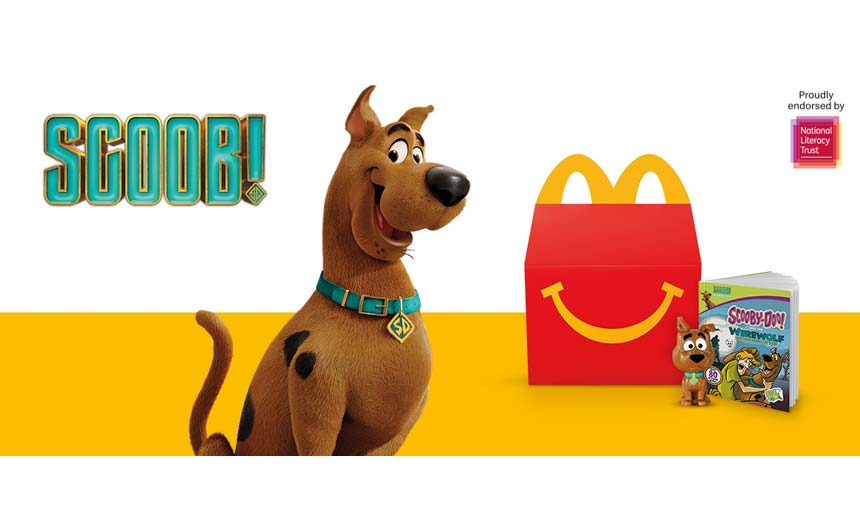
Returning to the ‘Mc’ and its current promotion – the Scoob promotion is a good example of how McDonald’s has adapted and is changing its promotional offerings. Consumers are now given a choice of premiums with two parallel programmes in play I believe. You can select either figurines or books.
The book element of McDonald’s promotions seems to becoming a core part of its offer and includes a link to the National Literacy Trust. To me this seems like a good direction of travel for McDonald’s and it is good to see books getting into children’s hands. Of course, there are counter arguments in terms of the pros and cons of this kind of partnership, but it is good to see books being made more widely available. It is easy to overlook the fact that books are not readily available to all children.
I think this kind of promotion and the link to the National Literacy Trust is a good example of how licensing and licensed characters can (and arguably should) be involved in campaigns that can make a positive contribution. As an aside, McDonald’s website mentions 93 million Happy Readers have participated in its book-led programme since 2007. That is an impressive level of consumer engagement.
I believe the scheme has also been linked with WH Smith in the past. This suggests to me that licensed promotions could be a great boost to retail at the moment. Would be good to see more examples of promotions that have a ‘call to action’ in and around retail.
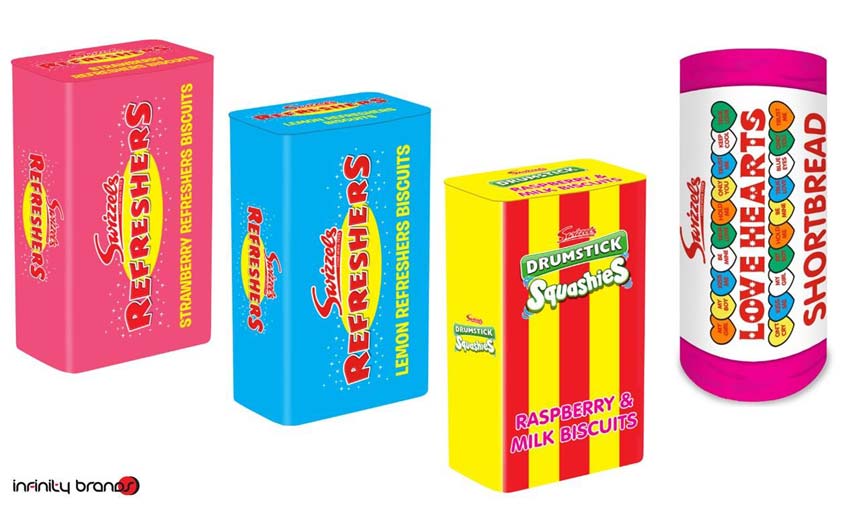
In the wider food industry there have been some interesting ‘reveals’ this week of new partnerships focused on licensing and brand extensions. Long-term licensee Infinity Brands announced a new licensing partnership with confectionery company Swizzels Matlow. Infinity Brands will be launching a range of biscuits next year. The products will be sold in tins and will feature brands such as Love Hearts, Drumstick and Refreshers. The move to biscuits for a confectionery brand makes sense and isn’t a great stretch. Some other confectionery firms like Mars have made this move already, but done it directly. In this case, Swizzels is tapping into the sector knowledge of Infinity Brands and has focused initially on tinned products which open up opportunities in the gifting sector, delis, farm shops and independent retail.
Infinity Brands has developed a great retail network and in normal times attend trade shows such as the Spring Fair which is a great showcase for Swizzels’ brand. A brand like Love Hearts is tailormade for gifting and I would expect to see some eye-catching products tapping into occasions like Valentine’s Day.
It is also worth noting that the packaging and visual elements of a licensed food product are generally only half the story. A key to success, acceptance and approval is passing the taste test. Licensed food products have to reflect the taste experience of the core brand. This is not always straightforward not least when moving from one category to another. I know in my experience of brands such as Tango that this is a vital step to get right and is imperative in terms of gaining brand trust. The development time for this kind of licensing can be considerable, but it is an essential part of the process. It sounds like Swizzels has rightly been very focused on this in its work with Infinity Brands and I am sure the final products will confirm this is the right approach.
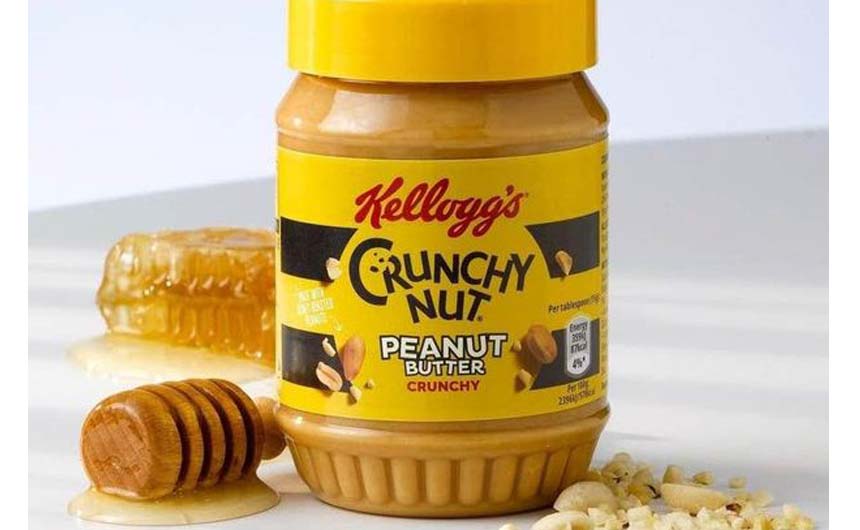
Another interesting new development that I became aware of this week is the launch of Kellogg’s Crunchy Nut Peanut Butter. My understanding is that this is a licensing style deal with the product developed by Duerr’s, which is best known as a jam manufacturer. Industry statistics suggest that peanut butter is now outselling jam.
There has been a lot of brand action in the peanut butter category as brands such as Marmite have got involved and manufacturers seek a point of difference. Younger consumers also seem more receptive to brand ‘mash ups’ in the food category. Against this background it makes sense to see a giant of the breakfast category like Kellogg’s getting involved in the category. In turn Duerr’s has decided not to stand still in the face of declining sales in its traditional category and has tapped into a well-loved brand to strengthen its hand in a fast developing category.
I haven’t tasted this product yet but it seems to make sense to me and I have no doubt it will pass the taste test. It is also a great example of how a brand can be used in a new category to gain a competitive edge and give a manufacturer some added momentum.
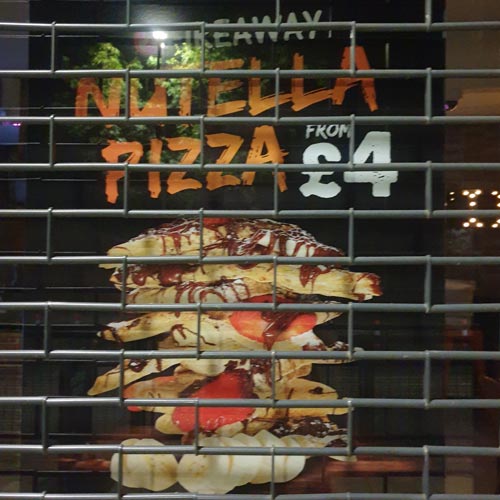
On the subject of brand mash ups, I noticed my local pizza takeaway was offering a Nutella flavoured pizza. I am not sure I will taste test this one but of course others will. This is a good example of how sectors like independent restaurants and bakeries can play with flavours and ingredients often featuring well known brands. Think about milkshake bars and their use of confectionery brands. In turn these kind of things can then influence more mainstream developments. I suspect food brand owners monitor this kind of thing and use it as part of their NPD process.
Who knows, maybe a few cafes have been serving their ‘homemade’ Kellogg’s Crunch Nut Peanut Butter! It can be a bit of a grey area rights wise, but it is always worth watching what is going on in the independent sector.
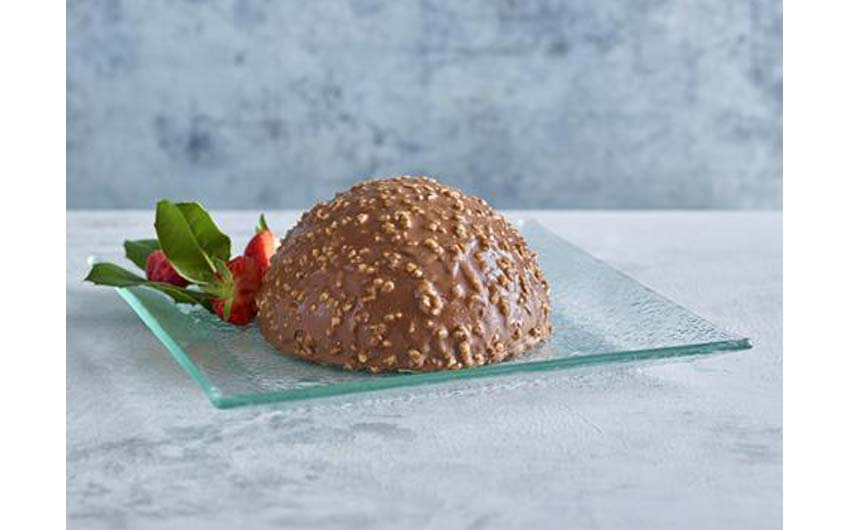
I also read about a development from Aldi for its Christmas 2020 desserts offering. This development certainly had the wow factor and would seem one that in part may have been influenced by developments in the independent sector. Aldi has developed a Ferrero Rocher-inspired dessert. I read about this development in The Grocer and it is not clear on what basis this product has been developed. Let’s assume there is some kind of licensing element to it.
It is a further example of how licensing can help brand owners extend the brand experience and engagement for consumers. Christmas and Ferrero Rocher are intrinsically linked already. Extending into the desserts category further underpins this association. It will undoubtedly reach new consumers and reinforce the brand’s credentials. A development like this should encourage other brands to think big and should also inspire NPD from other retailers.
As mentioned before I am sure part of the inspiration behind this development probably came from independent bakers, cake makers and home cooks who use products like Ferrero Rocher as ingredients in their ‘homemade’ creations.
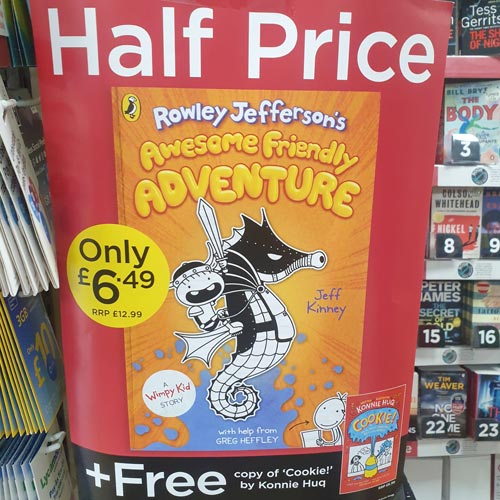
Finally, and returning to retail, it is interesting to see how retailers are handling the ‘return to retail’. Not strictly licensing, but I noticed WH Smith is running a promotion on children’s books at the moment. Rowley Jefferson’s Awesome Friendly Adventure book was available at half price and a further incentive to purchase was you could get a copy of Konnie Huq’s Cookie free with purchase. From a consumer perspective this seems like a great deal.
One never quite knows who funds these kind of promotions and how the individual authors might regard them. But what is clear is that retailers like WH Smith feel that they have to kickstart consumer spending and part of their strategy is to flag up offers like this one. I am not sure how sustainable offers like this are, but it does reinforce my view that retailers may well find more value in working with licensed brands at the moment to help stimulate retail visits and purchase. This doesn’t always need to be focused on giving things away for free or at heavy discount. I think there is scope at looking at ways that licensing can add value to the shopping experience.
Ian Downes runs Start Licensing, an independent brand licensing agency. His Twitter handle is @startlicensing – he would welcome your suggestions for what to look out for.



























